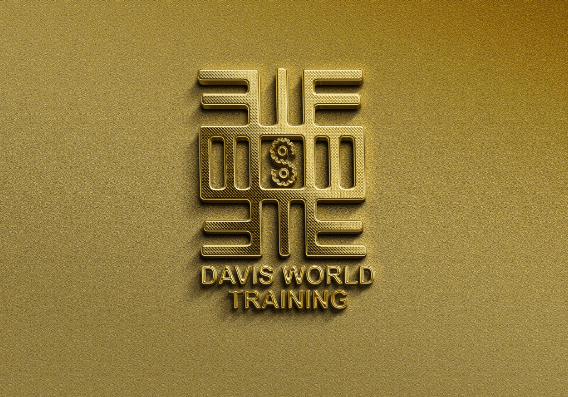By: Yvonne Renee Davis, MS, MA, PC
Upon my recent return from Central America to the United States, civility was on my mind. There’s a dire need for more civility in workplace settings. On May 5, Cinco De Mayo Holiday, I left Panama City on the day of its National Presidential election, and although the State Department issued a warning to avoid going into public places where large crowds were gathering for Americans to protect themselves from any outbreaks or harm, Panama was utterly shut down the evening before at 6 p.m., and no bars were open for anyone to roam the streets or drink. It was a civil election without any disruption except for voting.
I traveled to 65 countries, training thousands in leadership skills and communications. One of the increasingly pressing issues for leaders today is incivility in the workplace. Significant societal shifts impact all of us in our homes and the workplace.
Historically, nightly news reports were once broadcast at 6 o’clock, and late-night news on analog television to 24-hour seven-days-per-week cable news networks. Now, endless digital streaming OTT platforms on social media notoriously impact our psyches. Coupled with individual, couple, and family challenges and pressures at home, it spills over into a workplace in which people react defensively, apprehensively, and sensitively to hostile, mean-spirited, and volatility in more and more cases.
Examples contributing to workplace incivility are people witnessing catastrophic moments in our history repeatedly covered by the news. These tragedies invoke visceral emotional, psychological, and physical responses internally, starting at home and then at work – the cycle continues.

At the core of these stories are consistent reports of significant loss. From 2001 to the present, starting with September 11, in the U.S., the wars that followed in the Middle East, Central Asia, Eastern Europe, and North Asia, the launch of Facebook, controversial elections, massive shootings, earthquakes, heatwave deaths, massive fires, worldwide unemployment, economic crashes, George Floyd, COVID-19, terrorism, refugee crises, human rights atrocities, war fatigue experienced by people globally, violence, sex-trafficking, immigration, homelessness, world-wide protests, loneliness, disaffected youth, political movements, celebrity scandals, gender, race, ethnicity, culture, and religious hostilities, and the perennial presence of deceptive news, Cancel Culture, obesity, and health problems, and now AI have all affected the emotional mindset of any person who beholds the information and takes in information via social media platforms. People become fragile, confused, angry, depressed, stressed out, fearful, overwhelmed, and overstimulated with their smart devices, not getting enough sleep.
Ingesting local news, crime reports, social ills, inequities, and societal imbalances regarding quality of life, an employee goes to work internalizing a confluence of unsympathetic news forces that can lead to mean-spiritedness, a jaundiced view about the world, and a workplace experience that leads to hostility, bullying, and workplace violence.
Sadly, incivility has become a part of the workplace norm. A protective shell to fight back or preserve any small amount of safety or dignity people exhibit by being awful to a colleague. They burn out and do just enough to get a check, go home, and start the same toxic cycle daily.
This underscores the critical role leaders must play when engaging their employees in civility. Recognizing the long-term influences of media and social media on employees, leaders must take a coaching role toward team greatness and improvement. Civility is an action word that challenges people to treat others better by listening, learning, and doing.
A Catalyst for Change
Rooting out incivility must be a priority. Leaders must have zero tolerance for hateful, angry outbursts, name-calling, and foul language. Microaggression assaults, insults, invalidations, and passive-aggressive communication must also be rooted out. Workplace gossip is destructive.
The more incivility inside the workplace, the less productivity and the more calling out sick, leading to company losses over time. Incivility leads to a “gang mentality,” choosing to stick together because of the toxicity. Leaders at all levels who allow this continuous behavior are enablers and should be removed from leadership, contributing to the organization’s failure.
It is incumbent that leaders invest time, emotional, and spiritual intelligence into their staff by co-creating an environment that actively stops and repairs the damage caused by incivility.
It goes beyond politeness or professional courtesy. It recognizes the importance of each employee in the company and the value proposition they contribute to the department.
Leaders must engage, raise, and develop other leaders to lead civilly. They must also learn to manage conflicts, communicate, and recover from blunders with skillful empathic listening and mastery of corrective and crucial conversations.

More Actions Towards Workplace Civility
Sadly, people are less tolerant of one another, but it doesn’t have to end there. Communication plans prioritizing civility must be added to workplace safety and other mandatory training required by law.
Encouraged employees to create internal civility campaigns involving the entire company. Civility campaigns are inclusive and allow people to be team leaders for civility.
Another critical action is to engage an onsite executive coach or therapist who can come to the company and be available to leaders and employees to express what is triggering incivility.
Sometimes, when all else is exhausted, the employee and, yes, a leader, too, must leave the company to preserve the good of the whole and the company’s mission.
Final Thoughts
Our smart devices and social media engagement impact civility—we must take daily breaks from our digital contraptions. When we watch our smartphones or iPads, let’s work to avoid negativity by watching or listening to something calming to help let go and release the workplace stress we are already under to perform.
Leaders set the tone by engaging in acts of civility and what it means that gives dignity and understanding employees can follow for a healthier company.
To reach Yvonne Renee Davis for leadership development training or executive coaching, email yvonne@davisworldtraining.com or visit her website.
Published by: Khy Talara











